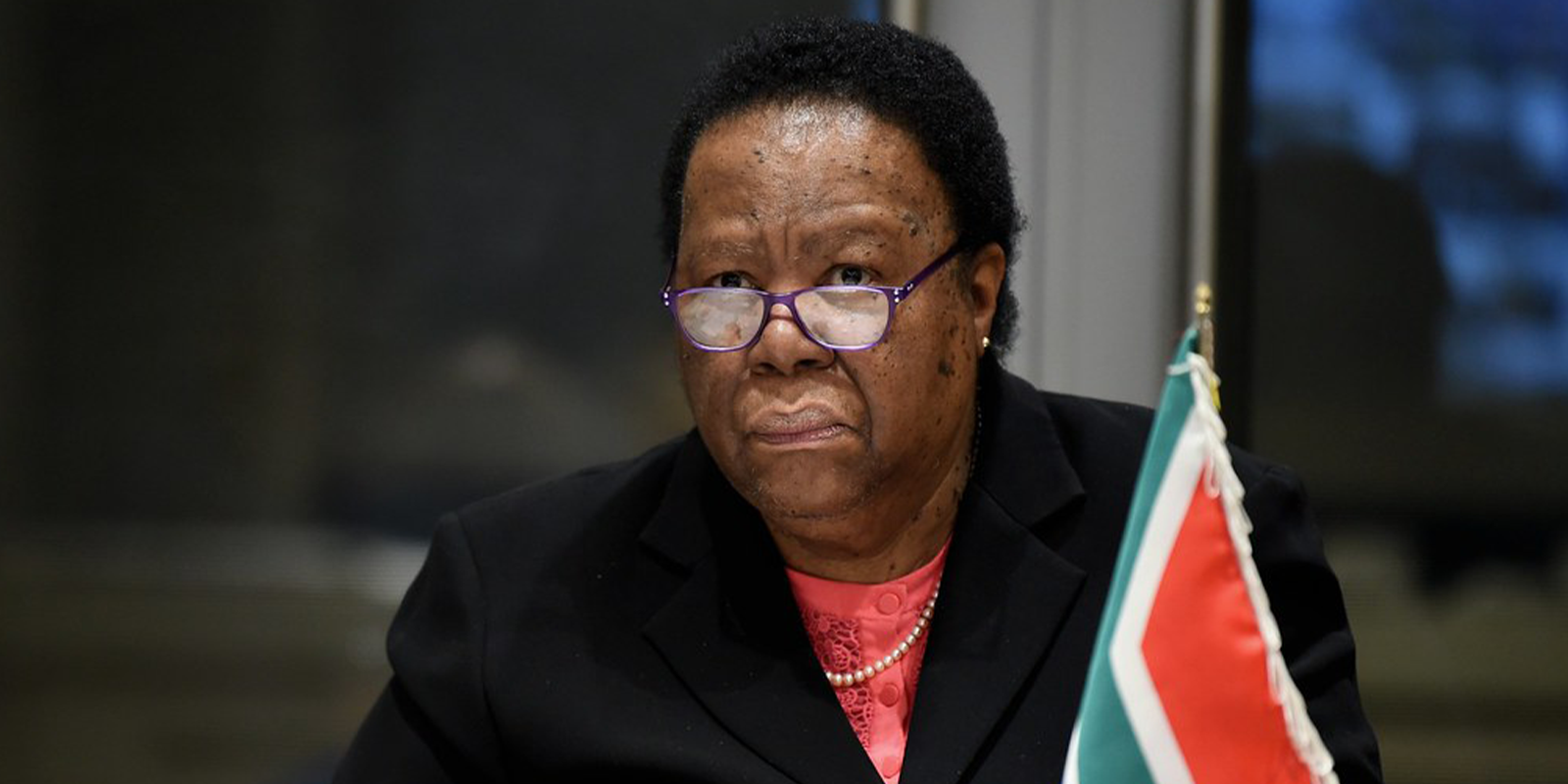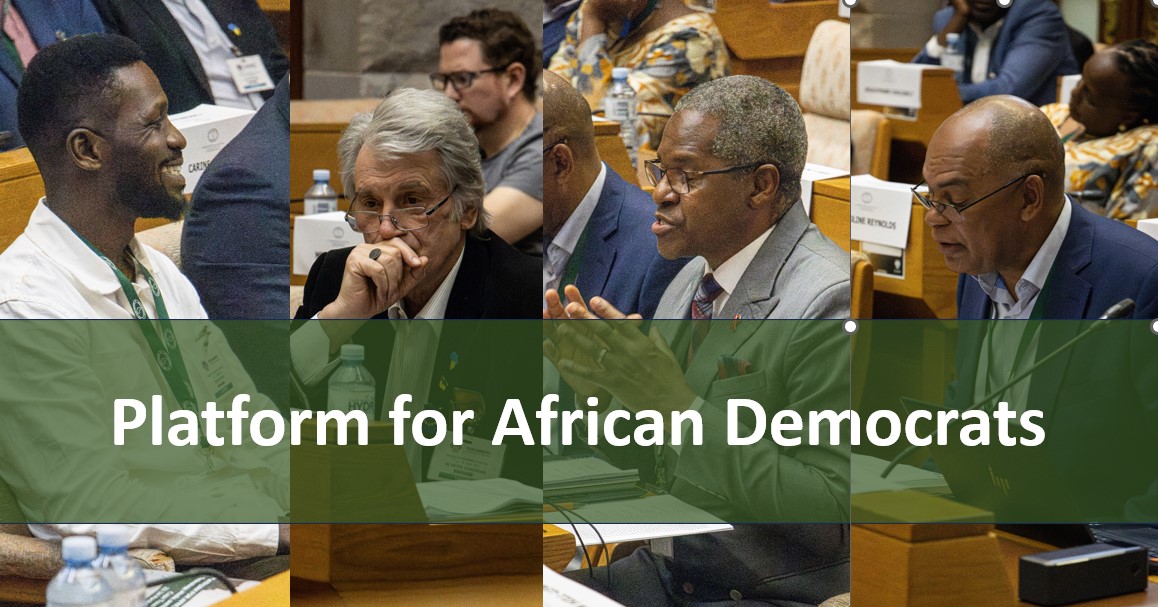News
Naledi Pandor is Treading the Pik Botha Path to SA’s Diplomatic Oblivion
The ANC now faces the cold winds of disapproval which it is struggling to deal with, in part because it is now so full of its brand of sanctimonious ideological bunkum that it can’t see straight.

Research Director, The Brenthurst Foundation

Director, The Brenthurst Foundation

In a distorted mirror image of Pik Botha’s missions to sell the “good intentions” of South Africa during apartheid to the US, International Relations and Cooperation Minister Naledi Pandor has been on a mission to sell her government’s somewhat bedraggled foreign policy.
While there are, of course, differences in time, ideology and posture, there are some striking resemblances.
During the apartheid years, the government regularly defended its importance to the West based on a similar argument to the one Pandor is making today — the strategic importance of South Africa’s location and economy.
And like her pre-1994 predecessor, she has penned well-placed op-eds. In a Financial Times article, she argues: “Seeking to bring South Africa to its knees almost amounts to self-sabotage for the US. We were a key driver in the formulation of the African Continental Free Trade Agreement and now of its implementation. Given that AfCFTA creates the largest single free trade area in the world, with 1.3bn people and a combined gross domestic product of $3.4tn, it would be advantageous for the US to capitalise on such opportunities, and work with us as a gateway to the continent.”
This is naïve in the extreme. First, the notion that South Africa is the “gateway to the continent” is simply wrong. Nigeria in the west, Kenya in the east and Egypt in the north might lay more credible claims as their economic growth rates outstrip that of the former southern giant. It presumes that the US requires the connivance of a self-appointed gatekeeper to a free trade area whose timescale to fruition is four decades away.
South Africa is making another rookie mistake. It believes that good relations with the White House give it licence to cock a snook in international relations against US sentiment, values and interests without disturbing its economic relations.
But this is Washington, not Kampala. Policy is not just up to Joe Biden, nor the US’s diplomatic representatives, conditioned as they are to calming troubled waters at any cost. The real cauldron is in the House and Senate, where foreign relations are regulated by legislation as is evidenced by a Bill currently before the House to curtail South Africa’s trade privileges because of its foreign relations misadventures. The Bill criticises South Africa for “engaging in activities that undermine US national security or foreign policy interests” and for its flirtation with “malign actors”.
Just as Botha and the National Party learnt with Reagan and the Comprehensive Anti-Apartheid Act of 1985, it is a waste of time cosying up to the executive when the real action is on Capitol Hill.
Botha had the advantage that he could tap into South Africa’s history as a US ally in both world wars, the Korean War and the Cold War, where the Soviets backed the ANC. Pandor has none of these advantages, as the ANC was viewed as a Soviet-backed enemy. By associating itself so closely with Russia and China, the ANC is confirming that stereotype.
Public opinion
Another lesson is that public opinion matters and the perception of the value and condition of SA has deteriorated to the point that many would question why they would now stick up for a country with anti-democratic foreign policy vectors.
The world has changed since the invasion of Ukraine and we picked the wrong side.
The challenge for SA is thus: the end of apartheid saw the country’s Western partners increasingly judging it by normal parameters. No longer did a single (ideological) issue dominate every decision. In the same way, that advantage for the ANC has, over a generation, dissipated.
After 1994, the ANC basked in the glory of global approval, the early success of the transition gaining SA a slice of the moral high ground, able to punch above its weight in international fora. But Nelson Mandela is long gone and it is apparent that the old anti-West agenda has been dusted off by a new class of politicians fond of rents and those who dispense them.
The ANC no longer has the wiggle room it once enjoyed. South Africa is now judged as any other country and is being found wanting.
South Africa’s claim to be the torch-holder for a wave of democratisation no longer holds. The anti-apartheid struggle was all about democracy promotion, and yet we have only engaged with human rights on a selective basis and where it suits our ideological interests.
South Africa’s friendship with authoritarians has been accompanied by limp enthusiasm for promoting democracy, whether in neighbouring Zimbabwe or further afield in Africa.
How did we get ourselves into this pickle?
Diplomatic shockers
Two weeks after the Hamas terror attack on Israel, Pandor visited Iran where she met with that country’s president, Ayatollah Seyyed Ebrahim Raisi.
According to the official statement on the visit, she made the visit “to convey a message from HE President M C Ramaphosa” and to engage “on issues of mutual bilateral interest”.
The statement said: “Countries like South Africa have been consistent in their support to Palestine and have never deviated from the belief President Mandela held, that until the people of Palestine are free, South Africa will not be fully free.”
In diplomacy, the symbolism of such a visit, accompanied as it was by the decision to end diplomatic relations with Israel, was clear.
As was the symbolism of her phone call with Hamas leader Ismail Haniyeh a mere 10 days after the terror attack.
In a statement issued a day after the meeting with Hamas, that organisation gleefully reported that Pandor had expressed support for the attack, “Operation Al-Aqsa Flood”.
Ramaphosa’s spokesperson, Vincent Magwenya, responded that such a call was “a diplomatic impossibility” as South Africa had no relationship with Hamas.
He was wrong. The call had taken place and soon Pandor was putting out the fire, saying that no support had been given for the 7 October attack.

At one level, this is amateurish diplomatic bungling deserving of the Order of the Tangled Baobab. How is possible that the Presidency was unaware of Pandor’s call with Hamas or of the symbolic significance of a fawning visit to Iran?
This follows a series of other diplomatic shockers such as the conducting of military exercises with Russia after its invasion of Ukraine and the numerous friendly meetings between Pandor and her Russian counterpart, Sergey Lavrov.
After one such meeting, she said: “There are some who don’t wish us to have relations with an old, historical friend. We have made it clear that Russia is a friend and we have had cooperative partnerships for many, many years … We cannot become sudden enemies at the demand of others.”
As was the case with Hamas, Pandor has since tried to walk this back. It took until November 2023 with much pro-Russian water under the bridge before she finally hosted Ukraine’s foreign minister, Dmytro Kuleba.
Furious backpedalling
“I think our original decision to remain non-aligned was the right one,” she said, somewhat disingenuously.
There is a pattern here: South Africa takes an ill-considered position and then backpedals furiously when the diplomatic chickens come home to roost.
The trouble with this strategy is that it creates an impression that the country is not being honest about its true feelings which, on the evidence, suggests it desires a decisive pivot away from the world of democratic nations towards that dominated by authoritarians, but wants its Western partners to ignore this.
Regrettably for South Africa, there is a growing lobby in the US and elsewhere that takes a dim view of this pivot, that wants to stop this charade and remove privileges that the country enjoys under the Agoa trade deal, among others.
The ANC now faces the cold winds of disapproval which it is struggling to deal with, in part because it is now so full of its brand of sanctimonious ideological bunkum that it can’t see straight, because foreign policy was until now seen as a relatively cost-free domain in which to prove one’s liberation credentials in the absence of delivery at home, and partly because there may be inducements pulling it in other directions.
This is despite the fact there may be some in the ANC who realise that they have taken it a bit too far, that hostility to the Western industrial democracies comes at a cost which the ANC cannot afford, and the scrambling, spin-doctoring and schmoozing is not going to cut it.
South Africa needs to return to watering its democratic roots and becoming a champion for ordinary people across the continent who want freely and fairly elected governments that are transparent and accountable.
This article originally appeared on Daily Maverick.

